A Conversation with Bruce Duffie
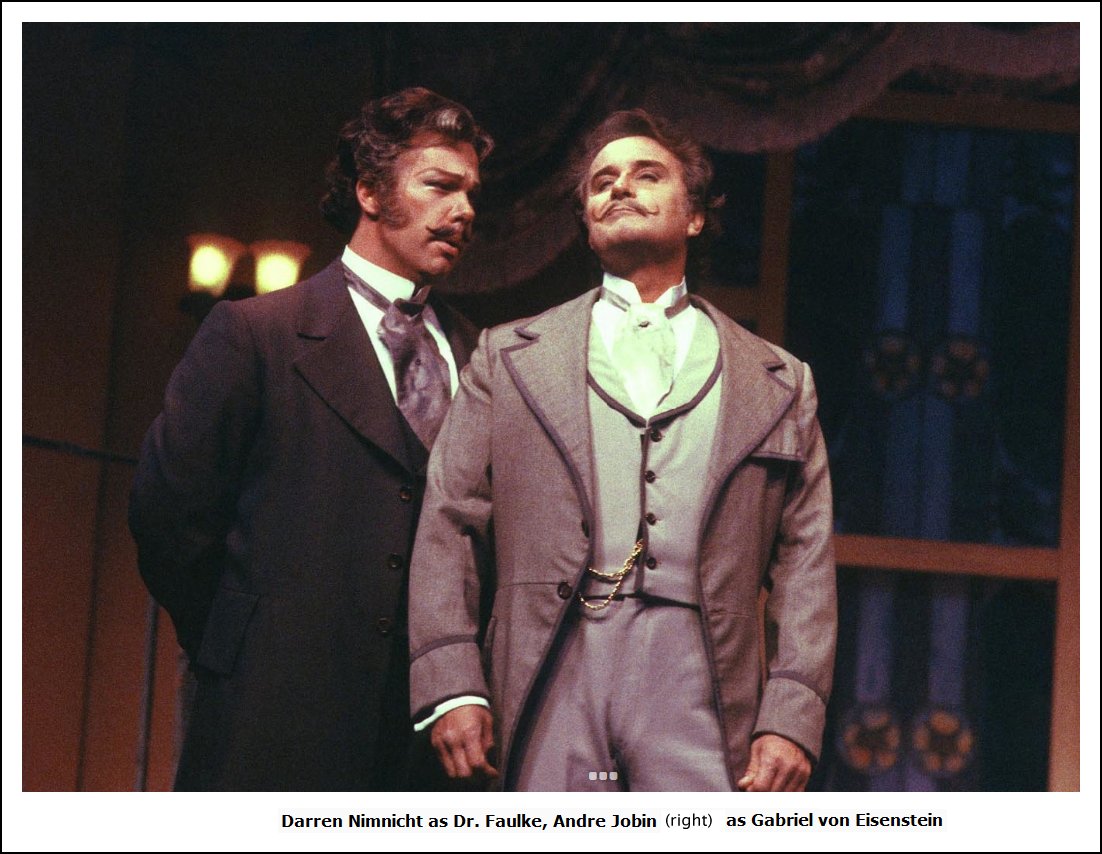

André
Jobin. Tenor, actor, stage designer, b Quebec City 20 Jan 1933.
After 10 years in New York, he went to Paris, where his family had
settled, and began studying drama with Pierre Bertin and Suzanne
Nivette of the Comédie Française. In 1952 he performed as
a member of the Compagnie Jean-Louis Barrault-Madeleine Renaud in
Europe, the USA, and Canada. During this time he also studied singing,
first with his mother and later with Janine Micheau. As a singer he
made his debut in 1958 at the Théâtre de l'Étoile
in Nouvelle-Orléans, a
musical comedy by Pascal Bastia and Sydney Bechet, who starred in it.
His aptitude for playing juvenile leads in operetta subsequently was
demonstrated in Joseph Kosma's Bilitis
et l'amour (the role of Cynésias) and in Georges Van
Parys's Le Jeu des dames
(1960). The following year he tackled classical operetta, particularly
the Viennese, where the leading roles gave him ample opportunity to
display his talents as a singer and actor.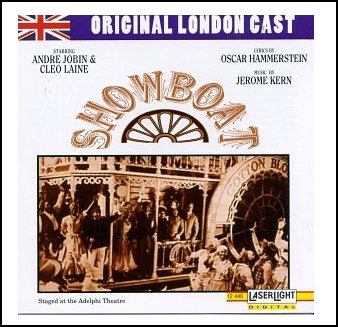 Jobin turned to opera in 1963, performing the title
roles in Gluck's Orphée,
Haydn's The Apothecary, and
especially Pelléas et
Mélisande. He first sang Pelléas in 1963 at the
Opéra-Comique in Paris and repeated it in the famous houses of
Berlin, Brussels, Madrid, and San Francisco, where a reviewer
declared: 'Vocally brilliant was the new young tenor,
André Jobin, who made a thoroughly believable and princely
Pelléas' (San Francisco
Chronicle, 5 Nov 1965). He repeated Pelléas at the New
York City Opera in 1970. Jobin turned to opera in 1963, performing the title
roles in Gluck's Orphée,
Haydn's The Apothecary, and
especially Pelléas et
Mélisande. He first sang Pelléas in 1963 at the
Opéra-Comique in Paris and repeated it in the famous houses of
Berlin, Brussels, Madrid, and San Francisco, where a reviewer
declared: 'Vocally brilliant was the new young tenor,
André Jobin, who made a thoroughly believable and princely
Pelléas' (San Francisco
Chronicle, 5 Nov 1965). He repeated Pelléas at the New
York City Opera in 1970.Jobin pursued his career in operetta successfully in premieres and in standard repertoire in France and in many other countries. He went to Australia in 1968 to perform Valses de Vienne and made his CBC TV debut as Ange Pitou in Lecocq's La Fille de Madame Angot. He then played the role of Guy Florès in Benatzky's L'Auberge du cheval blanc at the Théâtre du Châtelet in Paris (1968-9). His participation in the recording of Lecocq's operetta Le Petit Duc earned him a 1968 Grand prix du disque. In 1970 he sang in Die Fledermaus in Geneva and The Merry Widow on CBC TV. His career took a new direction in mid-1971, when he accepted the producer Harold Fielding's invitation to sing the role of Gaylord Ravenal in a London production of Jerome Kern's Showboat at the Adelphi Theatre. His success in the starring role was so great that he remained in London for almost three years, performing it 935 times. He returned to Paris in 1974 in Jacques Debronkart's Les Aventures de Tom Jones and then embarked on a series of performances of Il était une fois l'opérette at the Théâtre Bobino, a show that had a successful run in Paris before touring Canada in 1975. Jobin again distinguished himself on the immense stage of Le Châtelet in 1978 singing Michel Andrassy in the revival of Lehar's Christmas Rose and Boris in Francis Lopez' Volga at the same theatre. The daily L'Aurore described his performance in Christmas Rose: 'André Jobin is the house tenor par excellence. He has youth, vitality, and charm and is one of those singers who are no more afraid of high Cs than of soft notes' (17 Nov 1978). In 1979 he sang the role of Sou-Chong in seven performances of the operetta Land of Smiles at the Grand Théâtre in Quebec City in a production by the Société lyrique d'Aubigny. He sang the role of Angelo in the Italian premiere of Gilbert Bécaud's Opéra d'Aran (1982). He performed more than 2000 times on the Parisian stage and played 96 different roles in some 170 cities throughout the world. He also played such tenor roles as Werther, Roméo, Le Cid (Massenet) and Don José. He staged Manon at the Opéra de Québec (1988) and The Merry Widow at the Opéra de Montréal (1991). -- From the Canadian
Encyclopedia
|
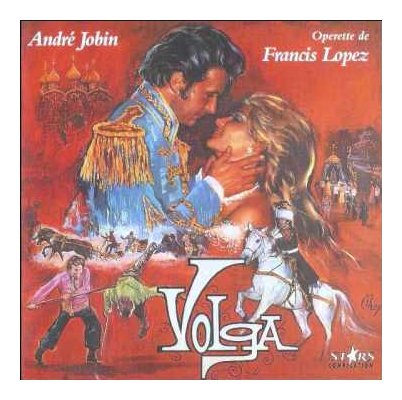 AJ: I don't know.
AJ: I don't know.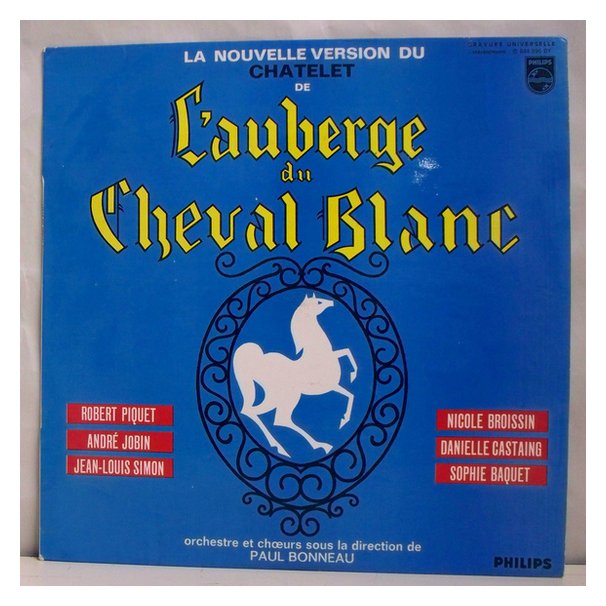 AJ: That's a beautiful
part, too. For the audience, though, it's not a role that you
have much success in. He's not there in the last act, and the
main part is, of course, for Louise. But Julien is very
important, and if you sing it very well, you can sing practically
anything. It's a very difficult part to sing, one of the most
difficult parts.
AJ: That's a beautiful
part, too. For the audience, though, it's not a role that you
have much success in. He's not there in the last act, and the
main part is, of course, for Louise. But Julien is very
important, and if you sing it very well, you can sing practically
anything. It's a very difficult part to sing, one of the most
difficult parts.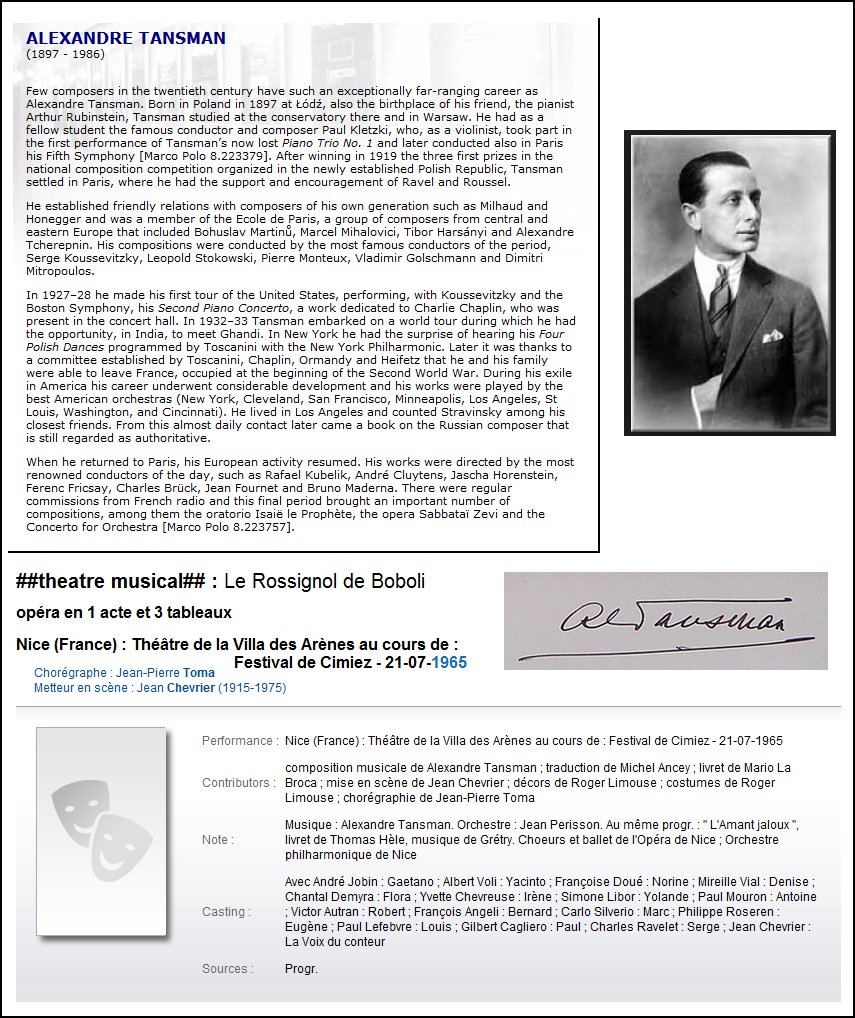
Henri Tomasi (17 August 1901 –
13 January 1971) was born in a working-class neighborhood of Marseille,
France. His father Xavier Tomasi and mother Josephine Vincensi were
originally from La Casinca, Corsica. At the age of five, the family
moved to Mazarques, France where Xavier Tomasi worked as a postal
worker and enrolled his son in music theory lessons. At the age of
seven, Tomasi entered the Conservatoire de Musique de Marseille.
Pressured by his father, he played for upper-class families, where he
felt "humiliated to be on show like a trained animal." In 1913, the
family moved back to Marseille. Tomasi had dreams of becoming a sailor
and skipped many of his music classes. During the summer, he stayed
with his grandmother in Corsica and learned traditional Corsican songs.
In 1916, he won first prize in harmony, along with his friend Zino
Francescatti, the celebrated violinist. World War I delayed his
entrance into the Paris Conservatoire, so he played piano in Marseille
to earn money. He performed in diverse venues such as upscale hotels,
restaurants, brothels, and movie houses. His gift for composition was
developed during this time as he improvised at the keyboard. The early
Charlie Chaplin films also intrigued him.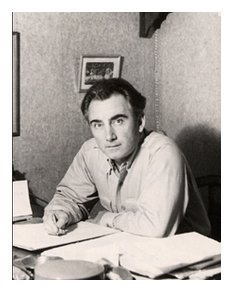 In 1921, he commenced his studies at the Conservatoire
de Paris with a scholarship from Marseille and a stipend from a lawyer,
Maitre Levy Oulman. He still performed at cafes and in the cinemas to
earn money. His friend Maurice Franck described Tomasi as a hard
worker: "He showed up with a fugue a week, he was indefatigable - an
inveterate workaholic." In 1925, his first piece, a wind quintet called
'Variations sur un Theme Corse', won the Prix Halphen. His teachers at
the Paris Conservatoire included Gaubert, Vincent d'Indy, Georges
Caussade, and Paul Vidal. In 1927, he won the second Grand Prix de Rome
for his cantata, 'Coriolan', and a First Prize for Orchestral
Conducting, both awarded unanimously. That same year he met his future
wife, Odette Camp, at the Opéra-Comique. They wed in 1929.
Tomasi began his career as a conductor for Concerts du Journal. In 1921, he commenced his studies at the Conservatoire
de Paris with a scholarship from Marseille and a stipend from a lawyer,
Maitre Levy Oulman. He still performed at cafes and in the cinemas to
earn money. His friend Maurice Franck described Tomasi as a hard
worker: "He showed up with a fugue a week, he was indefatigable - an
inveterate workaholic." In 1925, his first piece, a wind quintet called
'Variations sur un Theme Corse', won the Prix Halphen. His teachers at
the Paris Conservatoire included Gaubert, Vincent d'Indy, Georges
Caussade, and Paul Vidal. In 1927, he won the second Grand Prix de Rome
for his cantata, 'Coriolan', and a First Prize for Orchestral
Conducting, both awarded unanimously. That same year he met his future
wife, Odette Camp, at the Opéra-Comique. They wed in 1929.
Tomasi began his career as a conductor for Concerts du Journal.From 1930 to 1935 Tomasi served as the music director of the Radio Colonial Orchestra in French Indochina, founded by Julien Maigret during the 1931 Colonial Exhibition in Paris. Tomasi became one of the first radio conductors and a pioneer of "radiophonic" music. During the 1930s he was one of the founders of a contemporary music group in Paris entitled "Triton" along with Prokofiev, Milhaud, Honegger, and Poulenc. He spent equal time composing and conducting. He was one of the conductors for studio broadcasts of the Orchestre Radio Symphonique de la Radiodiffusion Francaise. He made his most memorable recording in 1936 with the extraordinary French mezzo-soprano Alice Raveau in Gluck's Orfeo, which was awarded the Grand Prix du Disque. In 1939 Tomasi was drafted into the French Army and was named marching-band conductor at the Villefranche sur Mer fort. In 1940 he was discharged and took up the baton at the Orchestre National de la Radiodiffusion Française. As a composer, his orchestral music is important, but above all he was attracted to the theater. In the realm of instrumental music, he preferred composing for wind instruments. He composed concerti for flute, oboe, clarinet, saxophone, bassoon, trumpet, horn, and trombone. He also composed concerti for violin and viola. In 1944, his son Claude was born and Tomasi started composing a Requiem dedicated to "the martyrs of the resistance movement and all those who have died for France." Tomasi was disillusioned by the events of World War II and subsequently rejected all faith in God. His Requiem was set aside and was not discovered again and recorded until 1996. In 1946, Tomasi assumed the post of conductor of the Opera de Monte Carlo. He became extremely sought-after as a guest conductor all over Europe. In 1948, he wrote what would become his most popular composition, the Concerto for Trumpet. In 1949 the Concerto for Saxophone was performed by Marcel Mule. In 1956 he composed the Concerto for Clarinet and the Concerto for Trombone. This same year brought the long-awaited world premiere of his opera Don Juan de Mañara based on a text by poet O. V. de L. Milosc. This opera, "L'Atlantide", and the comic opera "Le Testament di Pere Gaucher" established his reputation as an opera composer. In May 1956 at Bordeaux, his opera Sampiero Corso was premiered, with the Australian tenor Kenneth Neate in the title role. It was repeated at the Holland Festival in June. In 1957, Tomasi stopped conducting because of physical problems, including advancing deafness in his right ear. In 1966 Jean-Pierre Rampal played his Concerto for Flute with the Orchestre des Concerts Classiques in Marseille. His last piece for the theater, "In Praise of Madness (the nuclear era)", is a cross between opera and ballet and contains references to Nazism and napalm. It reflects Tomasi's postwar disillusionment with mankind. During his last period of composition he was motivated by political events and wrote pieces such as the Third World Symphony and Chant pour le Vietnam. In 1969, he held a series of interviews with his son, Claude, called "Autobiography with a Tape Recorder." As his health deteriorated, he began working on an operatic version of Hamlet. On 13 January 1971 he died peacefully in his apartment in Montmartre, Paris. He was buried in his wife's family tomb in Avignon. Later, to celebrate the centennial of his birth, his ashes were moved to the village of his ancestors in Penta di Casinca, Corsica. 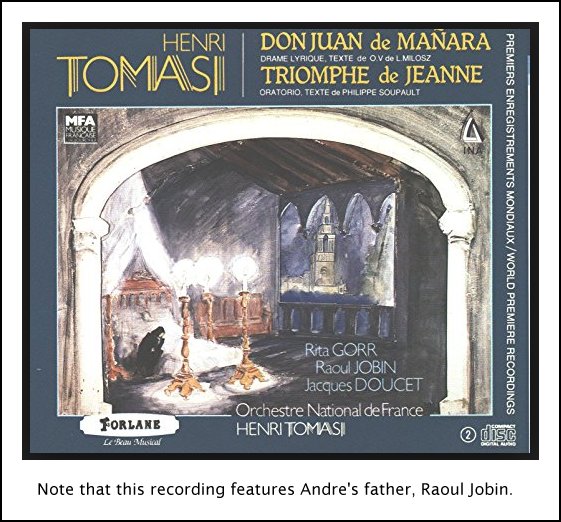 Tomasi's music is fundamentally lyrical. Diatonic and chromatic melodic lines predominate supported by tertian and polychordal harmonies. His music is highly colorful and one can hear the influence of his French contemporaries. Exotic sounds and colors of Corsica, Provence, Cambodia, Laos, the Sahara and Tahiti are used. He also wrote music inspired by medieval religious songs. He utilized many styles including Oriental recitative and twelve tone techniques but they were always personal and unique to him. Tomasi said: "Although I haven't shirked from using the most modern forms of expression, I've always been a melodist at heart. I can't stand systems and sectarianism. I write for the public at large. Music that doesn't come from the heart isn't music." His earliest influence stemmed from a performance his mother took him to of the opera La bohème. He wept over the tribulations of the main character, Mimì. In fact, he felt that La bohème was responsible for his musical destiny. It gave him a great passion for lyrical theater. Later he heard Bizet's Carmen and learned about Mussorgsky through Boris Godunov, and Debussy through Pelléas et Mélisande. He was influenced by Ravel, and later by Richard Strauss. Richard Wagner was never an influence on him. His harmonic inspiration derived from Debussy and Ravel. He felt that his experience from conducting enabled him to orchestrate with more skill. He felt that dodecaphonic music could be used occasionally when needed or called for. He thought that the inherent danger in electronic music was that it was devoid of the human factor: "...the end of the heart -a world filled with nothing more than the sound of machines!" Tomasi frequently based his works on a text of some sort, even if words were not actually used. To translate Tomasi's views on his own music: "My musical knowledge is not based on any system. The sensibility expresses itself and the mind controls. What good is it to invent new forms of speech? Everything has been said and everything has been done." Tomasi was primarily interested in "man and his passionate style." An hour-long documentary film produced by Jacques Sapiega was made in 2001. |
Gilbert Bécaud (24
October 1927 – 18 December 2001) was a French singer, composer, pianist
and actor, known as "Monsieur 100,000 Volts" for his energetic
performances. His best-known hits are "Nathalie" and "Et Maintenant", a
1961 release that became an English language hit as "What Now My Love".
He remained a popular artist for nearly fifty years, identifiable in
his dark blue suits, with a white shirt and "lucky tie"; blue with
white polka dots. When asked to explain his gift he said, "A flower
doesn't understand botany." His favourite venue was the Paris Olympia
under the management of Bruno Coquatrix. He debuted there in 1954 and
headlined in 1955, attracting 6,000 on his first night, three times the
capacity. On November 13, 1997, Bécaud was present for the
re-opening of the venue after its reconstruction.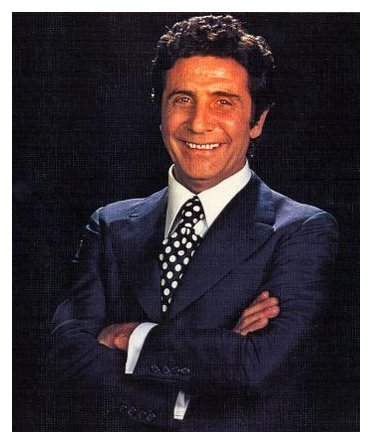 Born François Gilbert Léopold Silly in
Toulon, Bécaud learned to play the piano at a young age, and
then went to the Conservatoire de Nice. In 1942, he left school to join
the French Resistance during World War II. He began songwriting in
1948, after meeting Maurice Vidalin, who inspired him to write his
early compositions. He began writing for Marie Bizet; Bizet,
Bécaud and Vidalin became a successful trio, and their
partnership lasted until 1950. Born François Gilbert Léopold Silly in
Toulon, Bécaud learned to play the piano at a young age, and
then went to the Conservatoire de Nice. In 1942, he left school to join
the French Resistance during World War II. He began songwriting in
1948, after meeting Maurice Vidalin, who inspired him to write his
early compositions. He began writing for Marie Bizet; Bizet,
Bécaud and Vidalin became a successful trio, and their
partnership lasted until 1950.While touring with Jacques Pills as a pianist, Bécaud met Édith Piaf, the wife of Jacques Pills at the time. He began singing at her suggestion in 1953, with "Mes Mains" and "Les Croix". His first performance came the year after. His hits in the later part of the decade included La Corrida (1956), Le Jour où la Pluie Viendra (1957) and C'est Merveilleux L'amour (1958). His first hit in the English-speaking world was Jane Morgan's cover version of "Le Jour où la Pluie Viendra" (as "The Days the Rains Came", with English lyrics by Carl Sigman) in 1958. He began acting in the same period, starting with "Le Pays D'où Je Viens" (1956). In 1960, he won a Grand Prix du Disque and composed L'enfant à L'étoile, a Christmas cantata. That same year, Let It Be Me, an English version of his Je t'appartiens, became a hit for the Everly Brothers, followed, over the years, by Bob Dylan, Nina Simone, Elvis Presley, Willie Nelson, Jerry Butler, Sam & Dave and James Brown. In 1961, Bécaud wrote and recorded "Et Maintenant", one of the biggest selling singles in French history. Translated as "What Now My Love", the song became a hit by Shirley Bassey, Sonny & Cher, Elvis Presley, Judy Garland, Andy Williams, Herb Alpert and Frank Sinatra. In 1962, he completed his largest composition, the 2-act opera L'Opéra d'Aran, which was premiered at the Théâtre des Champs-Élysées on 25 October 1962. The plot of the opera takes place on the Aran Islands, off the west coast of Ireland, although Bécaud up to that point had never been to Ireland. After the opera's performances, Bécaud toured Europe and continued recording a string of pop music hits, including "Crois-moi ça durera" and "Tu le regretteras". He also co-wrote "Love on the Rocks" with Neil Diamond, which was featured on the soundtrack of The Jazz Singer and was an international hit. In addition, he co-wrote "September Morn" with Neil Diamond. Marlene Dietrich recorded his "Marie, Marie" and performed it in her stage shows. |
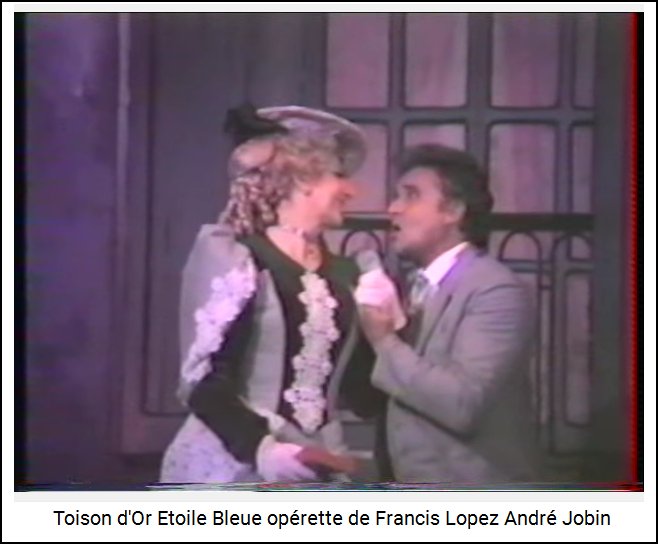
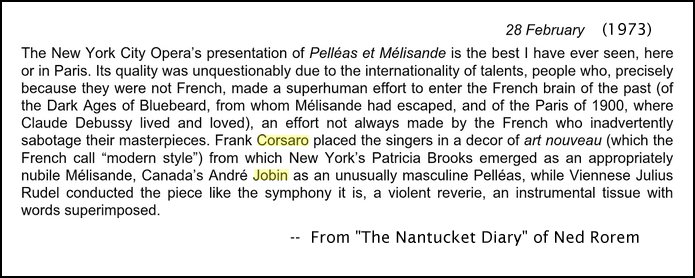  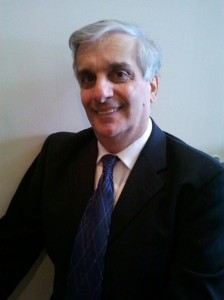 Robert Puleo began his singing career as a Boy Soprano,
in the role of AMAHL in Menotti’s
Christmas opera, Amahl and the Night
Visitors,
under the personal direction of the composer himself. His appearances
as a tenor soloist include The Bronx Opera, Alice Tully Hall, Symphony
Space and the Listening Room on WQXR. Last spring he appeared as a
guest artist with the critically acclaimed vocal chamber ensemble, The
Western Wind, in a series of Polish Renaissance Music concerts at the
Folger Library in Washington DC with the Folger consort. Robert Puleo began his singing career as a Boy Soprano,
in the role of AMAHL in Menotti’s
Christmas opera, Amahl and the Night
Visitors,
under the personal direction of the composer himself. His appearances
as a tenor soloist include The Bronx Opera, Alice Tully Hall, Symphony
Space and the Listening Room on WQXR. Last spring he appeared as a
guest artist with the critically acclaimed vocal chamber ensemble, The
Western Wind, in a series of Polish Renaissance Music concerts at the
Folger Library in Washington DC with the Folger consort.A prolific composer, Mr. Puleo is currently Composer-in-Residence at Trinity St. Paul’s Episcopal Church here in New Rochelle, where his commissioned anthem, CANTICLE: TE DEUM, was presented at that parish’s 325th anniversary service in 2013 with the United States Presiding Bishop of the Episcopal Church in attendance. His song, QUEEN CITY OF THE SOUND, was composed for, and performed at New Rochelle City Hall’s flag raising ceremony, kicking off our year long 325th anniversary celebration also in 2013. -- From a concert program
in New Rochelle, NY, December, 2014
|
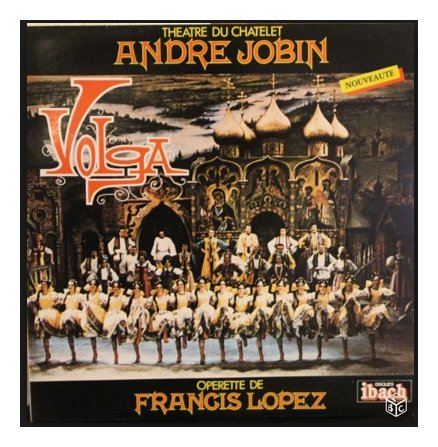 BD: That's a good
recommendation for us! I like to hear that kind of thing from
those who come here from other parts of the world.
BD: That's a good
recommendation for us! I like to hear that kind of thing from
those who come here from other parts of the world.© 1982 Bruce Duffie
This conversation was recorded in Chicago in May of 1982.
The transcription was made and part was published in The Massenet Newsletter in June of
1984. The full transcript was posted on this
website at the end of 2016.
To see a full list (with links) of interviews which have been transcribed and posted on this website, click here.
Award - winning broadcaster Bruce Duffie was with WNIB, Classical 97 in Chicago from 1975 until its final moment as a classical station in February of 2001. His interviews have also appeared in various magazines and journals since 1980, and he now continues his broadcast series on WNUR-FM, as well as on Contemporary Classical Internet Radio.
You are invited to visit his website for more information about his work, including selected transcripts of other interviews, plus a full list of his guests. He would also like to call your attention to the photos and information about his grandfather, who was a pioneer in the automotive field more than a century ago. You may also send him E-Mail with comments, questions and suggestions.